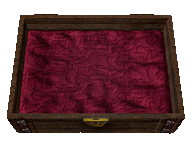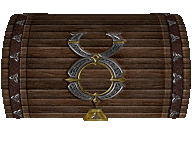Shopkeeper Profession


The Shopkeeper Profession uses the NPC Guild system in old-school Ultima Online. With the exception of thieves, OSI never did much with this system. The system has facilities for tracking points, increasing or decreasing fame and karma, and providing you with a profession specific title.
The points system is similar to skill points, but does not appear in your skill gump, nor does it affect your skill cap. It is implemented as a parallel system. Point acquisition is profession dependent.
The Professional Shopkeeper
This profession was created to benefit merchants who are skilled and don’t necessarily like being lumped in with any ol’ schmo that tosses a couple scrolls on a vendor and calls themselves a merchant.
The purpose of the Shopkeeper profession is to separate the players that use npc vendors as a way to dump crap they don’t want, and the truly dedicated professional that takes time to run a respected shop.
This new profession is entirely opt in. Not joining simply means you continue to run your shop as you always have with your recognition coming via word of mouth.
How it works
You opt into the profession by joining the Merchant’s Guild. The Merchant Guildmaster can be found inside the Merchants Guild one building north of the healer of Britain. There is also one in Magincia just south of the Mage Shop. Once you join, your title will become Neophyte Shopkeeper with your current fame and karma applying. For instance,
Mashiara, Neophyte Shopkeeper
Your title will continue to evolve as your gain more profession points. The levels are the standard OSI levels: Neophyte, Novice, Apprentice, Journeyman, Expert, Adept, Master, Grandmaster, Elder, and Legendary. For instance:
The Trustworthy Mashiara, Legendary Shopkeeper
The point system
Shopkeeper points, fame, karma and penalties are all tied to NPC vendor performance. For the purpose of this discussion we’ll refer to the collection of above attributes as attributes. Without giving exact formulas, here are the basics:
Vendor charge reason: Wage
The daily wage you pay your vendor will result in a small attribute increase. Rental Vendor: For rental vendors, the attributes will be split with 75% going to the renter and 25% going to the shop owner.
Vendor charge reason: Commission
For commission vendors, you will gain attributes commensurate with the sale (up to some maximum.) Rental Vendor: For rental vendors, the attributes will be split with 75% going to the renter and 25% going to the shop owner.
Vendor charge reason: Restock (Penalty)
When you restock your commission vendor (moving/repricing existing items), you incur a restock charge at the current rate of 7% of the item’s worth. This value is subtracted from your profession attributes. Rental Vendor: For rental vendors, the penalty will be carried entirely by the renter.
Vendor charge reason: Default (Penalty)
When you do not have enough gold on your vendor to pay the daily wage you will be in default, your vendor will die, and you will incur an attribute penalty of 10x the defaulted amount. For instance, if your vendor’s daily wage is 70 gold and your vendor is holding 2 gold, then the penalty calculation will be based on 70 x 10 = 700. (You do not get credit for the 2 gold on your vendor.) Rental Vendor: For rental vendors, the penalty will be carried entirely by the renter.
| Title | Vendor Fees Paid |
|---|---|
| Legendary | 1500000 |
| Elder | 1375000 |
| Grandmaster | 1250000 |
| Master | 1125000 |
| Adept | 1000000 |
| Expert | 875000 |
| Journeyman | 750000 |
| Apprentice | 625000 |
| Novice | 500000 |
| Neophyte | 375000 |






